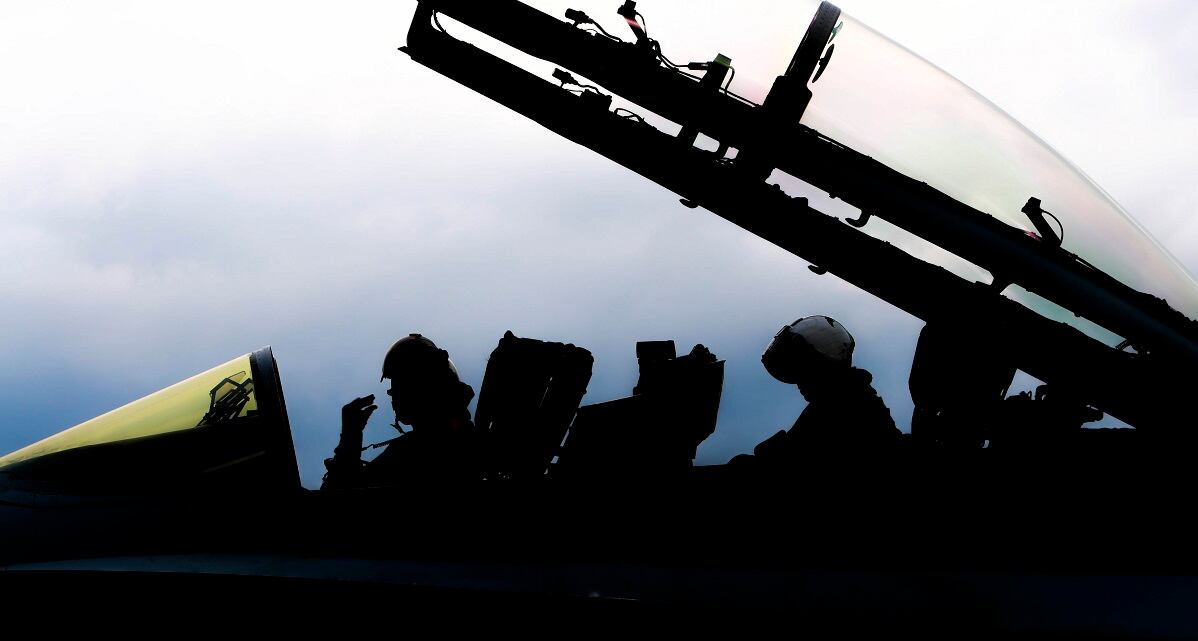In 1944, 44 Marines landed on the beaches of Roi Namur in the Marshall Islands.
Seven survived.
Marine Pfc. Joseph P. Nicoletto, my grandfather, was one of those seven.
After being wounded in combat and returning home, he asked my grandmother, “Why did I deserve to live and they didn’t?” He never received an answer to this question.
RELATED

Still, God blessed him with being one of the seven, in turn blessing me with this life.
Only a mathematician could calculate the odds of me being here today. Even so, I know that those odds are minuscule.
Although Pfc. Nicoletto was one of seven to survive in his platoon, he was almost killed every time he took a breath on Roi Namur: He almost drowned when he jumped off the side of his landing ship and swam to shore — sniper rounds buzzing his head as he swam. Once on the island, a blockhouse exploded, knocking him unconscious. He also was wounded in the battle.
An inch to the left or a few feet closer, and I may not be here today.
My life is a gift. So is yours. How can we not be enthusiastic about that?
Internal enthusiasm is vital to being a successful leader — especially as a Marine.
“Leadership is the sum of those qualities of intellect, human understanding, and moral character that enables a person to inspire and control a group of people successfully,” according to Gen. John A. Lejeune.
Without these qualities, the task likely will not be completed — at least to the best of the team’s ability.
Leadership is a precursor to becoming a Marine. The Marine Corps instills 14 leadership traits and 11 principles in all Marines. Enthusiasm — one often relegated to an afterthought — is one of those 14 key traits.
I understand the natural instinct to overlook enthusiasm, or focus on other leadership traits such as courage or integrity. In fact, I assume that most of us search for books on Amazon about courage before we do about enthusiasm. But I believe that’s only because we view enthusiasm as an external characteristic, not also as internal one.
We see enthusiasm as the “rah-rah” speech given by our boss. Or a colleague who exclaims “Absolutely!” in response to a simple request.
Sometimes this type of enthusiasm is effective, usually it is not. But internal enthusiasm is always effective.
As one’s internal enthusiasm decreases, so does their appreciation for their employees and work. In contrast, when we appreciate how blessed we are, even in our most difficult times, our internal enthusiasm permeates our actions. This enthusiasm is what a leader requires.
Internal enthusiasm is not always easy to find. Personal issues, waking up early and long days at the office all attempt to stifle our enthusiasm for our mission, whatever it may be.
But our internal enthusiasm cannot be controlled by the ebbs and flows of everyday life. If it were, and you turned on the news for more than five minutes, it would be hard to be enthusiastic about anything.
Instead, our enthusiasm must be pinned on something else: on the idea that life is a gift.
Although not everyone has a story like Pfc. Nicoletto, we all have a reason to believe that life is a gift.
The ability to walk, think and breathe air are gifts. But, instead, we often focus on the issues in our lives and the world and ignore these blessings.
Sometimes we acknowledge them, but even then, we label them as “small” gifts.
How can we diminish them so easily?
For the 37 Marines that perished at Roi Namur, they no longer can breathe air, hug their loved ones or walk this Earth.
To them and their families, to have those moments again would be no small gift. This reality should fuel our internal enthusiasm.
When we think this way, it is impossible for others not to recognize our appreciation for them, our work and our life.
There will be pain, grief and struggles in all our lives, some more than others. But, no matter our circumstances, we must not lose our internal enthusiasm.
This task is simple, not easy.
You will likely fail; I most certainly will fail.
But as any good leader understands, perseverance is the only option. And when you experience failure, maybe recall those 37 Marines.
Marine 1st Lt. Steven Arango is currently clerking for U.S. District Judge Fernando Rodriguez Jr. After completion of his clerkship, he will return to active duty in the Marine Corps as a judge advocate.
The views expressed in this article are those of the author and do not necessarily represent the views of Marine Corps Times, the U.S. Marine Corps, Department of the Navy, Department of Defense or the U.S. government.





